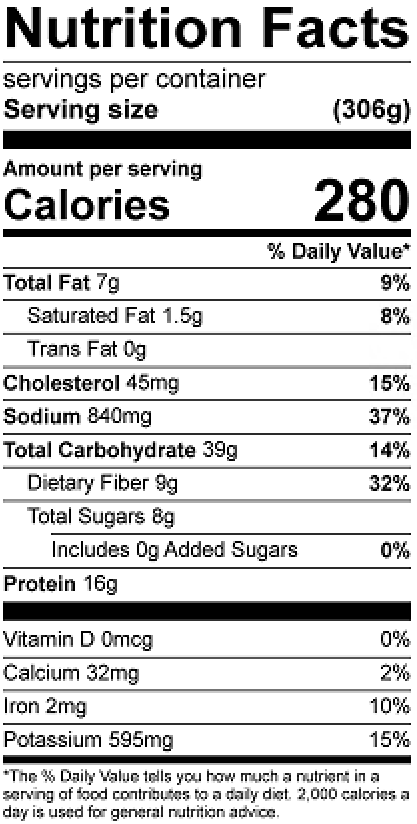Bright and bold Latin American flavors are simmered in a punchy broth with a hefty amount of aromatics. Canned beans give this soup a hearty depth, while the addition of creamy ripe avocados adds a soothing touch. This workhorse soup – that makes for incredible leftovers – comes together in just under thirty minutes.

Serves 8
Ingredients:
- 2 tablespoons extra virgin olive oil
- 4 boneless, skinless, chicken thighs
- 2 teaspoons salt
- 1 teaspoon coarse ground pepper
- 1 teaspoon chili powder
- 1 teaspoon cumin
- 1 lime, zest and juice reserved
- 1 medium yellow onion, chopped
- 5 cloves garlic, minced
- 1 28oz can diced tomatoes, low-sodium
- 1 15oz can black beans, low-sodium, drained
- 1 15oz can yellow corn, low-sodium, drained
- 1 bell pepper, any color, chopped
- ½ teaspoon red pepper flakes
- 7 small corn tortilla rounds, cut into strips
- 6 cups water
- ½ cup chopped cilantro, stems and leaves
- 1 ripe avocado, for garnish
Directions:
- Season chicken evenly with salt, black pepper, chili powder, cumin, and lime zest.
- In a large pot, over medium heat, add the olive oil.
- Place the chicken into the pot and sear for about two minutes per side. (The dark bits, known as fond, form the base of flavor for the soup.)
- Remove the chicken and set aside on a plate.
- Reduce heat to low and scrape and stir up the fond.
- Add the onions, garlic, diced tomatoes, beans, corn, bell pepper, and red pepper flakes to the pot. Stir to combine.
- Add the chicken back to the pot then the corn tortilla strips (these will dissolve in the soup).
- Add the water then simmer covered for twenty minutes until the chicken reaches 165˚ F.
- Garnish with the cilantro, lime juice, and avocado. Serve immediately.
Recipe by: Chef Brigid Washington
